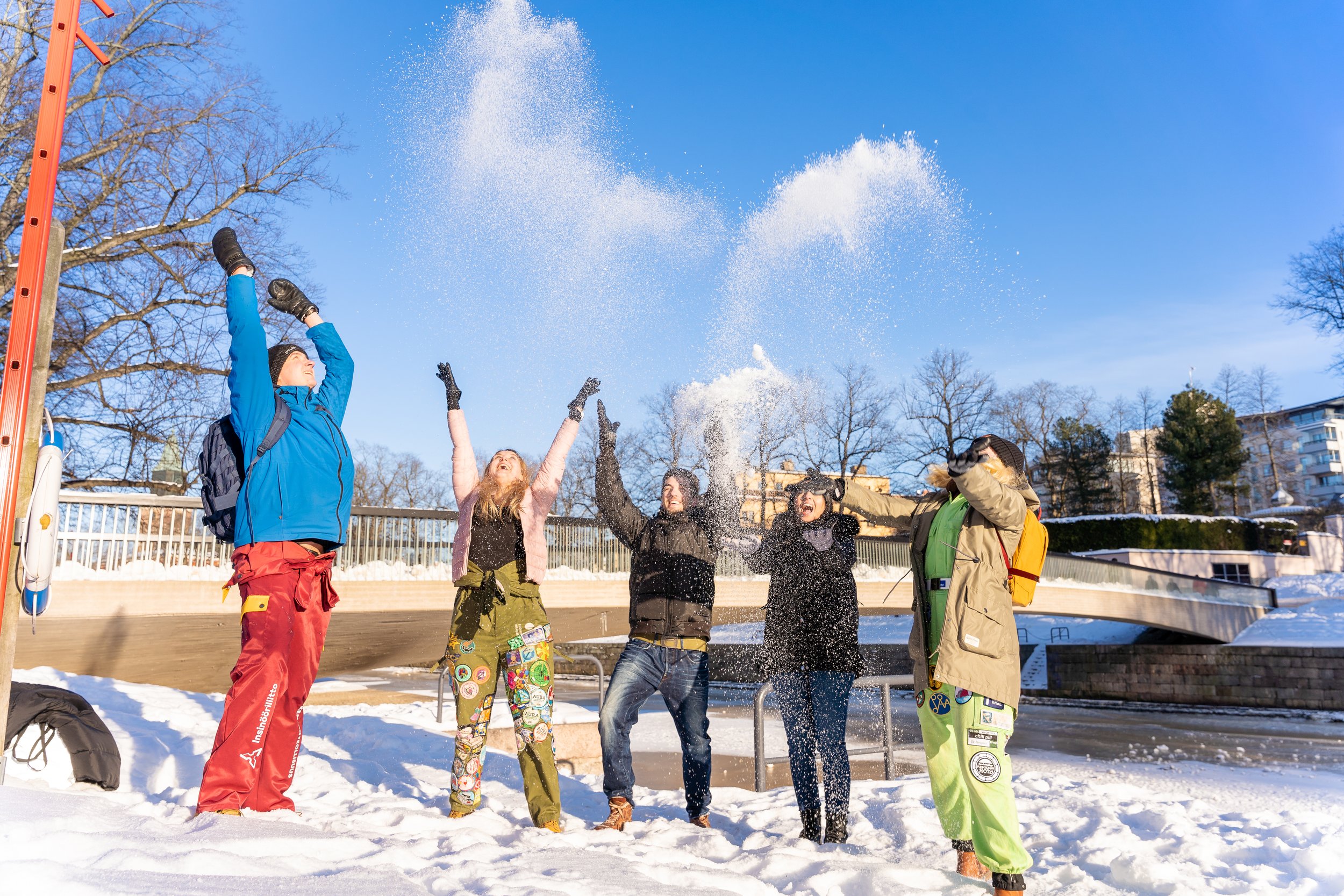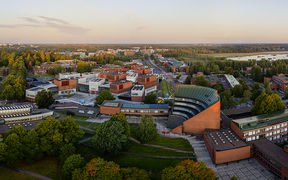Thesis Research as Part of the SCALE-UP Project
Copyright: Hanna Oksanen
Although SCALE-UP is a project focused very much on the implementation and real-life deployment (and upscaling) of sustainable urban mobility deployments and innovative governance structures, it also includes a more theoretical and academic path to map and eventually meet the needs of society. The wide impact of the overarching Horizon 2020 framework programme (2017-2022) is depicted in the description on the Commission’s webpage, about what the framework programme does:
“The programme facilitates collaboration and strengthens the impact of research and innovation in developing, supporting, and implementing EU policies while tackling global challenges. It supports creating and better dispersing of excellent knowledge and technologies.”
This City of Turku is taking an innovative and proactive approach to leverage knowledge and share the workload effectively between research, industry development and governance structures & responsibilities. Turku is a university city of 6 universities (4 of them of applied sciences) and accommodating over 40,000 students. University life is an essential part of the cityscape and shapes not only the city’s public sphere and citizen’s needs but also offers ample and important opportunities for collaboration between the academia, industry, and the city. Involving the students in the city’s work at different levels, within different disciplines and with an open mindset, the city contributes to building a collaborative community of educated citizens and benefits at the same time from new insights.
SCALE-UP is a living lab, where reality meets theory
Copyright: Hanna Oksanen
Through the SCALE-UP project, the city was able to collaborate with university students, who were able to work on their end-of-studies theses and deepen their insight into certain topics touching on the project’s actions and aims. By involving the students in the project, the city can explore different innovative options on a smaller scale, “think out of the box” and involve young researchers and ideas. The thesis work can also provide a very good basis for further work of the city or an additional point of view for future decision-making and budgeting.
SCALE-UP has met the midway mark of the project after 2 years and by now students in Turku have had or are currently working on several academic theses. Some samples of thesis work done in the context of the Scale-up project in Turku can be found below.
University of Turku, Finland
Copyright: University of Turku
1. Tanja Ylänen, a graduate of the Service Design degree programme at the Turku University of Applied Sciences finalised her Master’s thesis titled “Guiding People in Exceptional Traffic Situations – Service Design for the Digital Mobility Map of the City of Turku”. This thesis was related to the mobility view on the city’s service map, which belongs to the Data-Driven Strategies and Tools work under SCALE-UP. Mrs Ylänen discusses her work in an interview previously published on the Scale-up webpage.
2. Katariina Kasvinen, a graduate of Aalto University, finalised their Master’s thesis titled “Social Practice Theoretical Approach to Winter Cycling Promotion: Case Winter Mobility of Turku Residents.” The research was a part of the Winter as a Mobility Season measure which is a part of the work package on Behavioural Changes with a focus on Active and Healthy Modes of SCALE-UP. This study aimed to find out how winter cycling could be promoted in Turku.
3. Juha-Ville Forssell, a student at Turku University of Applied Sciences, is working on a Bachelor’s thesis on the topic of Citizen Science in Sustainable Transport which links to the Behavioural Changes with a focus on Active and Healthy Modes of Work Package (WP) of SCALE-UP.
4. Lukas Junghanns, a student for Sustainable Urban Mobility Transitions at Aalto University, is working on a Master’s thesis on Climate nudging as a part of the incentives of mobility services in Turku in a WP on Behavioural Changes with a focus on Active and Healthy Modes. Junghanns is currently researching the impact of information-based nudging in a housing company in Turku.
5. Mia Pylkkänen, a student at Turku University of Applied Sciences, is working on a Bachelor’s thesis on the topic of digital guidance for a specific target group of visually impaired individuals. This topic links both to the work package on Behavioural Changes with a focus on Active and Healthy Modes and the Data-Driven Strategies and Tools WP.
University of Aalto, Finland
Copyright: Aalto University
6. Nelli Kontturi, a student at Turku University of Applied Sciences, is working on a Bachelor’s thesis on the topic of means of furthering sustainable traffic and mobility on construction sites. This contributes to the Clean, safe and inclusive mobility solutions WP in SCALE-UP.
7. Eino Tähkäpää, a student at Turku University of Applied Sciences, is working on a Bachelor’s thesis on the topic of comparing two construction sites regarding the possibilities of using e-vehicles in their operations. This contributes to the Clean, safe and inclusive mobility solutions WP in SCALE-UP.
The Turku Urban Node is also working with three students from Turku University of Applied Sciences who will do their theses on different aspects of combining personal and logistics data.
“Bringing in interns and thesis students into the SCALE-UP project allows the Urban Node to expand views on very specific research topics to support the implementation and monitoring of SCALE-UP measures. It also allows for the student to learn about what the city does and to make their thesis practical and useful for the community”, says project manager Stella Aaltonen from the City of Turku.
The projects help students graduate and launch meaningful careers
For Turku University of Applied Sciences (TUAS) students, thesis work under EU-funded innovation projects such as SCALE-UP offers great opportunities to complement their studies and gather the inputs they need to advance their academic development. Although research at the University of Applied Sciences is, by definition, applied, the topics touched upon remain often theoretical. Projects thus offer a practical learning opportunity where a student can delve into a specific topic and gain valuable work experience while doing research. The students thus gain professional skills from time management to teamwork and problem-solving, very much in demand in any project. The high-paced, cyclical project-type line of work is nowadays more and more common in workplaces. Therefore, it is a great asset to get familiarised with its demands already during one’s studies. The students start learning these skills already during the project courses in their studies, however, it is clear that the actual real-life projects offer a unique opportunity to apply their skills hands-on.
The value of networks cannot be underestimated either, and writing one’s thesis in the scope of a project surely offers an opportunity for building professional network contacts that may very well prove useful later on in their work life. All in all, TUAS project-based student theses are a win-win situation for the students, the universities, the municipalities and local businesses. Students gain work experience and interesting thesis subjects that deal with topical innovations or real-life issues that need solving. TUAS gains thesis commissions and guidance that help the students to finish their studies on time. At best, the networks created during the thesis phase can even lead to employment directly after graduation.
Author: Eelin Hoffström-Cagiran (City of Turku), Annika Kunnasvirta (TUAS)




